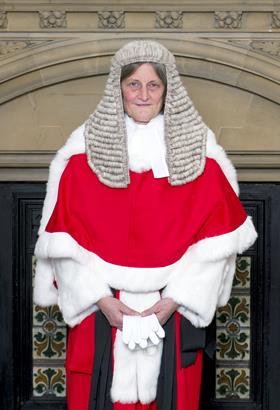Obiter has read its fair share of judgments, usually several a day. Some stick in the mind as an interesting point of law, an unusual historical reference, or even the rare appearance of an exclamation mark.
A well-written judgment, where each word pushes you to read its neighbour until, without realising it, you’ve read the entire thing and time has moved on though you did not notice, deserves to be highlighted.
The Honourable Mrs Justice Collins Rice has penned one such judgment: a case of an ‘intrepid’ travelling couple who booked an ‘expensive cruise – they paid more than £20,000 for’ but it was ‘a “trip of a lifetime” special occasion’. The trip did not go as planned due to sea ice. As Collins put it: ‘The Shermans went to none of the places and saw none of the things they had most wanted to experience. It was a bitter disappointment’.

The judgment in Sherman v Reader Offers Limited was not, however. With all the drama of an Agatha Christie novel, Collins Rice gave the background of the case and set the scene wonderfully.
‘They wanted their money back. When ROL refused, they brought a claim against the firm in the County Court, further demonstrating their intrepidity by presenting their case themselves, without legal help.
‘But the judge found, in all the circumstances, they had had no right to cancel and no right to compensation, and were instead liable to pay ROL’s litigation costs to the tune of £60,000 – another bitter disappointment.
‘They had looked hard at their contract, and at what the Package Travel, Package Holidays and Package Tour Regulations 1992 said about their rights. The regulations are clearly headed ‘Consumer Protection’; the Shermans are ordinary consumers, and they feel sure the County Court judge must have gone wrong in concluding they had no rights to redress. And so they bring this appeal, appearing again in person.’
Cue drumroll as the judgment leads into the figurative second act.
‘Is it the consumers, who ought to have realised before parting with £20,000 that ‘in the wake of the great explorers’ meant all too literally they might never make it past first base?
‘Or is it the cruise company choosing to market an expensive holiday in one of the least predictable waterways for ice in the Canadian Arctic if not the world (and embarking those consumers up to a thousand at a time), with the benefit of dense scientific data and expert risk assessment?’
The judgment errs on the poetic when discussing the ‘unforeseeable circumstances’ in the case. It states: ‘Where, on the facts, the risk of ice blockage was not only substantial but always and ineradicably so – where the ice’s very unpredictability was itself the only guarantee – the only inference sustainable from the evidence before the judge was that ice conditions making the NWP unnavigable were not ‘unforeseeable circumstances’.’
But, like all good things, this judgment too came to an end. And after 105 paragraphs and 35 pages, Collins Rice kept things to the point: ‘The Shermans’ appeal is allowed.’































7 Readers' comments